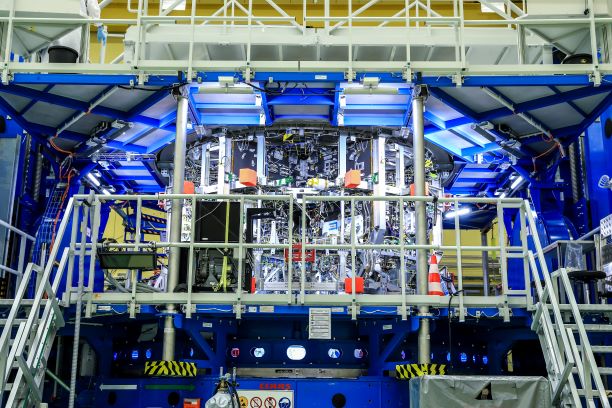
Ibadan, 10 February 2o23. – Three European Service Modules (ESMs) are currently undergoing integration in parallel in Airbus’ Bremen cleanrooms. Consequently, the integration of ESM-3 is almost complete, and ESM-4 is well underway. As a result, the newly arrived ESM-5 structure is undergoing initial integration. Each ESM requires the integration of more than 22,000 elements.
According to the release, this is the first time NASA has entrusted a non-US prime, Airbus through ESA, to build a mission-critical element for an American human spaceflight mission.
“Together with the European Space Agency, Airbus is providing half the spacecraft that will return humans to the Moon – taking them further than ever before into space and, of course, returning them safely to Earth,” said Marc Steckling, Head of Space Exploration at Airbus. “We have already delivered the first two ESMs, with ESM-2 currently being integrated in Orion at Kennedy Space Center. With the arrival of the ESM-4 structure last summer and that of ESM-5 just before Christmas, we have started the serial production phase.”
Steckling noted that Airbus has optimized its clean room to accommodate three ESMs simultaneously and is on track to meet NASA’s requirement to deliver one ESM per year.
The ESM is a critical element of NASA’s crewed Orion spaceship, providing the spacecraft’s primary propulsion system while enabling orbital maneuvering and positioning control. The ESM also provides electrical power generation and distribution, along with supplying the crew with the central elements of life support, such as water and oxygen. The European Space Agency (ESA) has invested about €2 billion in the Orion program and contracted Airbus to lead the European consortium and build six ESMs.





